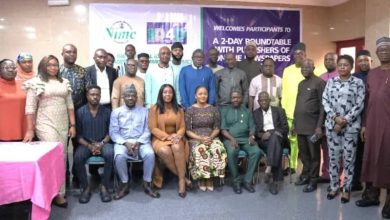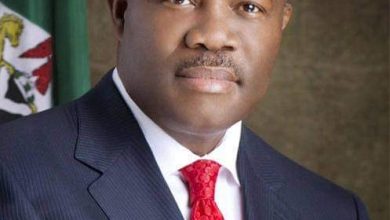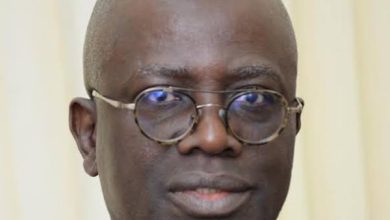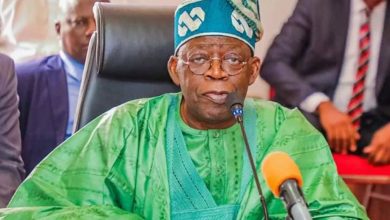Twitter and the Nigerian State: Matters Arising

On Friday, June 04, 2021, at about 04:34PM (WAT) the Federal Government of Nigeria (FGN) through the Minister of Information and Culture, Alhaji Lai Mohammed, announced the indefinite suspension of the use of Twitter in Nigeria. The announcement first appeared on the ministry’s twitter handle @FMICNigeria and cited the use of the platform for activities that were capable of undermining the country’s corporate existence as reason for the suspension (FG-Suspends-Twitter-Operations-in-Nigeria).
However, Nigerians generally believed that the government responded to a Twitter’s decision to delete a tweet by the Nigerian President where he was alleged to have threatened violence against a section of the country. The President was alleged to have responded to the violence erupting in parts of the country by saying on June 01, 2021, that: “Many of those misbehaving today are too young to be aware of the destruction and loss of lives that occurred during the Nigerian Civil War. Those of us in the fields for 30months, who went through the war, will treat them in the language they understand.”
This statement was believed by Twitter managers to be inappropriate and breeched the company’s policy on acceptable speech on its platform. In a swift reaction to the company’s decision to delete the Nigerian President’s tweet on its platform, the Nigerian Federal Ministry of Information directed the National Broadcasting Commission (NBC) to immediately commence the process of licensing all OTT (Over the Top) and social media operations in Nigeria and suspend the operations and use of Twitter in the country.
Following this, the Nigerian President’s wife, Mrs. Aisha Buhari, deactivated her twitter account on the same day, while the Nigerian Bar Association (NBA) and the Social Economic Rights (SERAP) stated that it would sue the federal government (though the courts are currently on strike) for violation of the rights of Nigerians to freedom of speech and association as enshrined in the Nigerian Federal Constitution of 1999.
Over the weekend the Association of Licensed Telecommunication Operators of Nigeria (ALTON) confirmed that its members had received formal instructions from the Nigerian Communications Commission (NCC), the sector regulator, to suspend access to Twitter, while the Attorney-General of the Federation (AGF) and Minister of Justice, Mr. Abubakar Malami had reportedly issued a statement ordering the prosecution of “violators” of the Twitter suspension order in Nigeria insisting that users of the platform would be prosecuted.
The Storm and the Teacup
The sequence of events leading to the Nigerian governments order to suspend the use of the microblogging platform in the country brings to the fore the wider concerns about the evolution of technology and the philosophical issue of managing social media’s control and influence.
A few questions come to mind:
- Who determines what is appropriate and inappropriate posts on microblogging sites such as Twitter? How do they come by such decisions? Who validates the decisions?
- Should society allow ‘nameless’, ‘faceless’ and legally ‘unaccountable’ individuals decide what is wrong or right communication?
- Should microblogging sites decide what some people would be allowed to say and what they would not? Does this constrain the freedom of speech they allegedly promote?
- If freedoms must be limited in the overall interest of society or humanity who should make such decision for society, a for-profit global corporate behemoth, a self-absorbed, sanctimonious national government, or some loose combination of both?
- How do we answer the classic question of “Quis custodiet ipsos custodes?” who guards the guards?
- How will the suspension of Twitter help improve governance and the rights of citizens to a fair say? The right to express dissatisfaction with government and the right to express support for government?
- How would social media government control affect the ability of citizens to bring to the notice of the international community violation of human right principles and practices that governments have signed up to as part of international statutes to be respected and obeyed?
The problem of the power of social media, as a product of private enterprise, remains a prickly global issue as governments worldwide struggle to establish the balance between individual rights and social responsibility. While governments have been accused of muzzling free speech, social media entrepreneurs commit the same offense with less or no public outrage.
The presumption that social media is a socially and politically neutral platform for societal conversation is false. Owners of microblogging platforms have recognizable biases that range from the innocuous to the sinister and these biases could have severe consequences for social and political stability in different parts of the world. Frontier and emerging market economies appear to face the blunt force trauma of the biases of owners of microblogging platforms more powerfully than more matured countries.
This has forced governments in a few nations to create different types of checks or filters on the activities of social media enterprises. A few Countries that have had problems with microblogging sites include the following:
1. China
2. France
3. India
4. Israel
5. Pakistan
6. Russia
7. South Korea
8. Egypt (2011 temporary block)
9. Iran
10. North Korea
11. Turkmenistan
12. Tanzania
13. Turkey
14. Venezuela
More recently one of the most publicized battles with a social media platform was the bust up between the United States of America’s President Donald Trump and Twitter in which the social media platform banned the US President from using its platform to tweet until 2023. The action of Twitter to bar the then US President inspired several global conversations over the power social media wielded and the capacity of the owners of social media to use it to shape public conversation, perception, and action.
While the Twitter ban could be seen as putting the US President in check over what generally were considered incendiary tweets, it showed that private enterprises managing social media platforms could wield enormous power over what societies consider acceptable or unacceptable speech or conduct, it hands such institutions a sword that could swing both ways. It is this inherent capacity of social media enterprises to sway collective opinion and subtly affect people’s decisions that makes social media institutions as dangerous as they are liberating.
No Time for Excuses
Be this as it may, the Federal Government of Nigeria’s action to suspend microblogging platform Twitter’s operations in Nigeria was precipitate and clever by half. A local Nigerian adage says that the answer to a headache is not cutting off the head. The answer to Twitter’s removal of a Nigerian Presidential Tweet that did not comply with the company’s governance guidance should certainly not have been the suspension of its operations in the country. Indeed, by the suspension the government has highlighted its intolerance and its tendency to act before introspection, both characteristics unbefitting of an administration that claims to respect citizens rights and the rule of law.
The suspension of Twitter’s operations in Nigeria conflicts with Chapter 2 section 22 of the Nigerian 1999 constitution as amended in 2011. The section declares that “The press, radio, television and other agencies of the mass media shall at all times be free to uphold the fundamental objectives contained in this Chapter and uphold the responsibility and accountability of the Government to the people”.
Microblogs are channels by which media platforms hold governments accountable and so suspending such microblogs goes against the spirit of the country’s constitution which guarantees citizen’s access to information. Concerns about national security are valid but they must be viewed within the wider context of balancing national security interests with the rights of citizens to information. So far, this has been a delicate global trapeze trick. However, governments cannot use this as an excuse to plug the mouths and stop the keyboards of subscribers to social media.
The Twitter Red herring
The Twitter saga is an unfortunate diversion from major social issues such as the wantoning killing of Nigerians across the federation by marauding herdsmen. The killing of almost 50 citizens in Oyo state, another 100 citizens in Benue state, 3 citizens in Ogun state and 10 in Kaduna state within forty-eight (48) hideous hours camouflages behind the issue of a Twitter suspension. However, both issues are tangentially linked. Microblogging platforms provide Nigerians with up-to-the-minute information on human carnage going on across the country. The social media tool enables citizens weigh national insecurity and the nature and effectiveness of the government’s response.
The threat to Nigeria’s corporate existence is not Twitter but government’s refusal to frontally address the issue of insecurity. The fact that the government wants to wish Twitter away does not resolve the existential challenge of a rampaging band of terrorists unleashing asymmetric war on the country.
Rather than spend time in squandering local and international goodwill in fighting an obscure and relatively unimportant battle with Twitter, the federal government would do well to address the Goliath knocking the breadth out of its credibility. Chapter 2 Section 14 (2a,2b and 2c) of the 1999 Constitution says that “It is hereby, accordingly, declared that:
a. sovereignty belongs to the people of Nigeria from whom government through this Constitution derives all its powers and authority;
b. the security and welfare of the people shall be the primary purpose of
government; and
c. the participation by the people in their government shall be ensured in
accordance with the provisions of this Constitution.
The government is, therefore, agent and not ruler of Nigerians as the constitution points out that ‘sovereignty belongs to the people’. The constitution equally emphasizes that the primary responsibility of the government is to see to the security and welfare of Nigerian citizens. In a situation where citizens are put to the sword daily in every geopolitical part of the country the government’s fixation with social media and the removal of the Presidents tweet is strange.
Those celebrating the action as a show of might by Nigeria over a global tech giant are either naïve, short-sighted or both. Nigeria and Nigerians would be better served if the country shows itself to be in control of the safety and livelihoods of its citizens and in control of its territorial borders than flexing muscles with a perceived digital enemy. A local adage suggests that the federal government has avoided finding an enduring cure for its festering ringworms (security and economic distress) as it casually continues to pick at its pimple (Twitter).
The government needs to reevaluate its policies and engage in proactive measures to protect the lives and properties of citizens, batting an eyelid at microblogging sites and ignoring the carnage occurring in the lives of ordinary citizens is unconscionable. The government has time to set itself on track to meet the expectations of Nigerians by choosing to do the following:
- Reverse the suspension of Twitter services in Nigeria immediately.
- Engage in a broad-based media discussion on setting the terms by which local and foreign microblogging platforms can operate in Nigeria, thereby ensuring that such platforms are not used to promote disharmony or threaten the country’s sovereignty and peace.
- Immediately initiating a territorial integrity shield across Nigeria’s vulnerable borders using technology and troops.
- Embark on regional discussions with thought leaders across the six geopolitical zones with the intention of allowing people express their concerns and submit recommendations for short-term improvement in their security and welfare while working on longer term solutions.
- Commence a comprehensive national strategic status review using the politics, economy, social, technology, environment, and security (PESTEL) framework. The framework should be reevaluated twice annually or every six months. The outcome of the exercise should inform policy adjustments needed to keep the economy and society on an even keel.
- The countries social media activism should be taken as a feedback mechanism to give the government a real time sense of citizen’s pains and a vehicle to intelligently engage citizens in respectful, constructive, and evidence-led conversations.
- Nigeria’s architecture on information management must change. At this stage, the country must have a farsighted and concise framework for managing mission-critical matters of statecraft. The knee jerk reaction of the present information framework makes the country look intellectually fragile and strategically inept.
- The country must seize the opportunity of this social media storm to define the regulatory space in which microblogging sites operate with consideration for best global practices and drawing insights from places like India and the USA.
- Nigerians must be treated as intelligent stakeholders in the country. They must be apprised of the damage that unfettered social media could cause to national security, harmony, and good governance. This must be done through dialogue and data-based evidence. A compelling argument should be made for the respect of freedom of information, but this must be within collectively agreed limits that do not breech national security. There is a fine line between freedom and tyranny just as there is a thin line between fact and fiction.
The government must connect with the reality of its action to suspend Twitter as it impairs the businesses of the nation’s young entrepreneurial class. It has been estimated that Nigeria could lose US$939.7m (N358bn) for every week that Twitter access is blocked. The response by those that favour governments action is that the microblogging site would also lose money, but how does it matter that a fellow kicks someone in the groin after his two eyes are blinded?
There is a place for ego and a place for temperance and good choices, Nigeria needs to shun the former and embrace the latter. Both physical security and enterprise security are of greater strategic importance than bruised tweets. The early the administration stops throwing red herrings the faster it can get to work on addressing Nigeria’s more pressing problems.
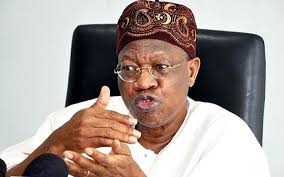
A Dangerous Dalliance
In the process of backslapping and fawning self-congratulations the President’s men have thrown caution to the wind with the President’s spokesman, Garba Shehu, openly canvassing Nigerians to patronize an alternative microblogging platform called “crowee”. This conduct by the President’s spokesperson undermines the President’s intent for ordering the suspension of Twitter services in Nigeria considering the background of overriding national interest.
The promotion of an alternative microblogging site diminishes the potency of the President’s message as it might be misconstrued as an effort designed to muscle out competition for a preferred local government-favoured competitor. This would breech rules of competition supervised by the Federal Competition and Consumer Protection Council (FCCPC) and the World Trade Organisation’s (WTO’s) rules concerning fair competition. The fact that a Nigerian, Dr. Ngozi Okonjo-Iweala, heads the global body makes the situation even more insidious.
Beyond the fact that Garba Shehu’s statement canvassing Nigerians to patronize crowee was in bad faith in an economy that prides itself with promoting fair market competition, the action smacks of a paragraph lifted from the script of a disingenuous playbook that creates unfair business opportunities for ‘friends’ of the administration. Politicians fail to understand the frailty of their offices and that actions taken in the heat of joy, or at the depth of sorrow have unintended consequences (the ‘effect‘).
A responsible government should not be seen to promote private businesses in an unfair way that breeches consideration of equitable market competition, it demeans the government and scares foreign investors. With Nigeria in critical need of direct foreign investment (DFI) making a circus of the Twitter issue serves nobody’s best interest. Crowee should be allowed to handle its own business without state crowing.
End Note
Social media cannot be allowed to run without some form of controls which should be structural/institutional rather than content. Guidelines should be set for what is permissible and impermissible actions related to posts on microblogging platforms, the conditions by which individual posts can be blocked, suspended, or deleted should be done within contexts that are less at the whim of owners of the platform but within guidelines influenced by the best public interest which should be shared with national communication regulatory agencies.
Concerns related to posts of government officials should be communicated in writing with a 48-hour response cycle within which certain pre-agreed actions would be triggered. It would also be useful for communications commissions such as Nigeria’s National Communications Commission (NCC) to state the kind of imagery concerning bloody events in Nigeria that can be broadcast without snaring the citizen’s right to information.
The Nigerian government appears to be bungling an opportunity to get fairer treatment of Nigeria by such blogging tools as Twitter. Playing hardball against the blogging site as some administration hawks recommend is not smart. Several young Nigerians make a living by using the tool and several local media houses have used the platform to build followership and monetized the followership to support secondary streams of cash flow.
The way forward would be to work around a more equitable social media engagement template with global microblogging platforms without circumscribing the rights of citizens to timely, factual, and unbiased information. The Nigerian government must come to terms with the difference between information and propaganda, one enlightens the other manipulates.
ADAPTED FROM PROSHARE



